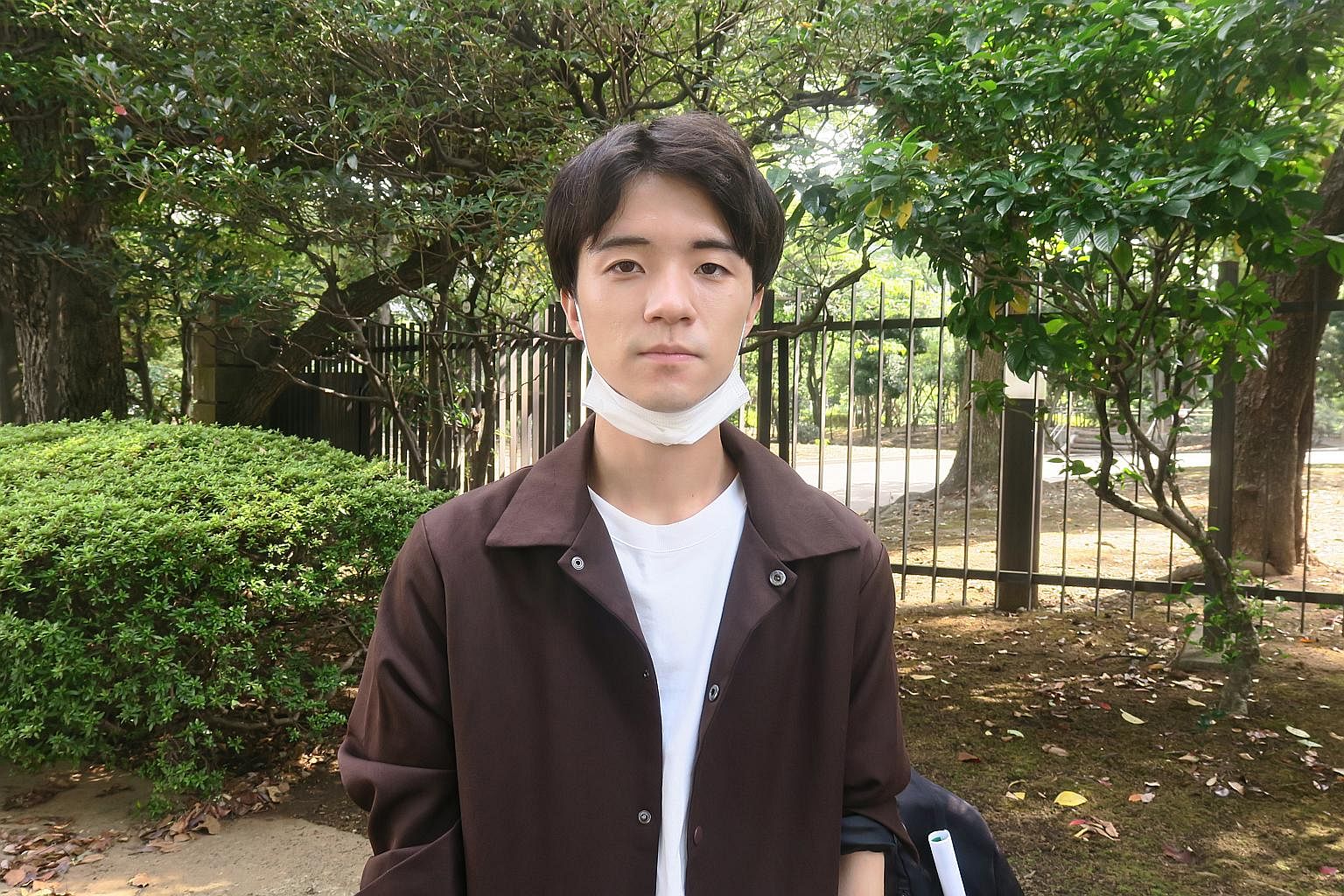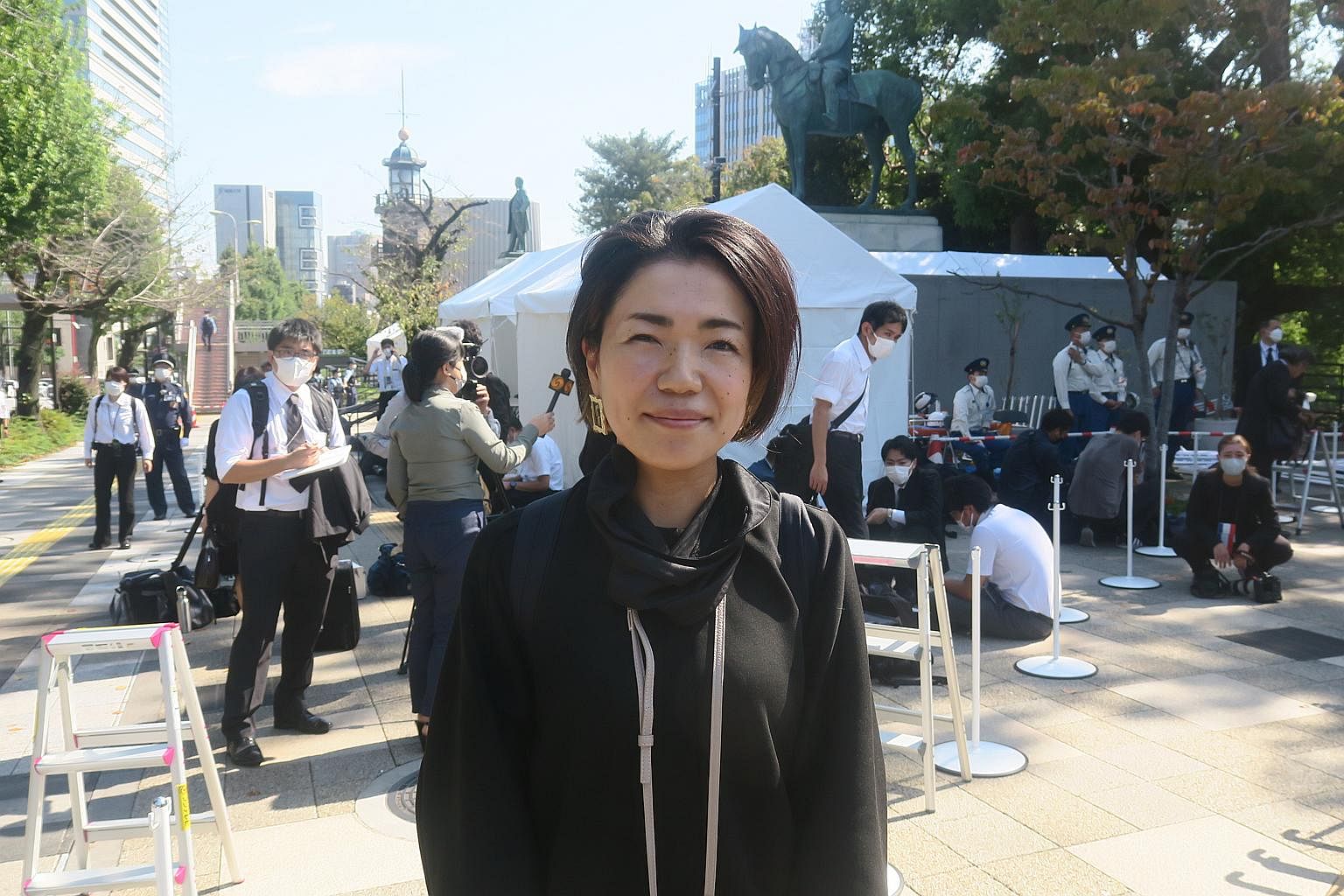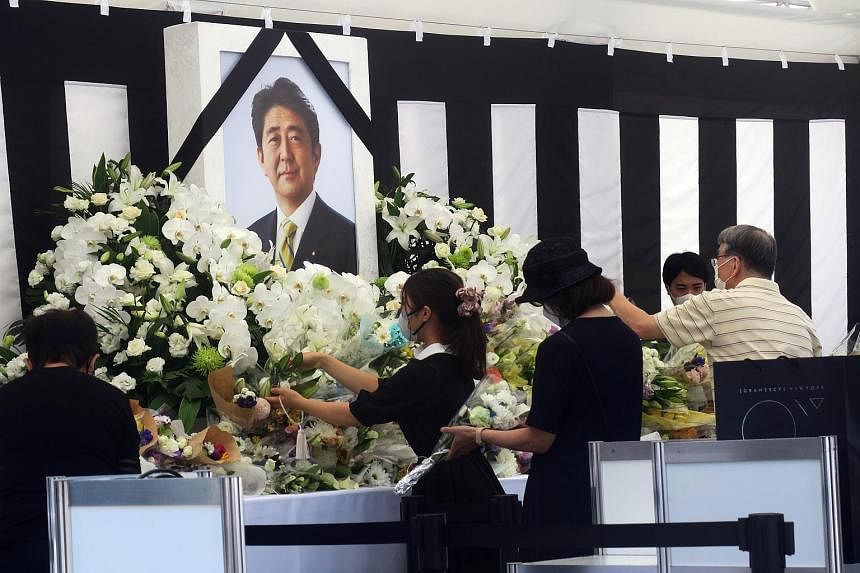TOKYO - Japanese young and old gathered in remembrance or in protest of the slain former prime minister Shinzo Abe on Tuesday, as the divisive leader was given a final send-off in a divisive state funeral.
Voices of gratitude were matched by those of dissent. Some, convinced that they were the "silent majority" and that polls that showed otherwise were likely "cooked", dismissed opposing voices as "empty barrels".
Mr Tomo Iwashita, 20, who lives in Sendai in north-east Japan, went alone to a peaceful protest outside the National Diet Building that drew 15,000 people.
He told The Straits Times: "Mr Abe had no qualms about waging an assault on democracy, he's the worst post-war leader for his disregard for the Constitution."
A biology undergraduate at Tohoku University, he said he attended his first protest in 2015 at the age of 13 against the "reinterpretation" of the pacifist Constitution, so as to allow Japan's Self-Defence Forces to enter combat in the name of "collective self-defence".
Mr Iwashita added: "The lack of transparency as to how this state funeral came to be decided - only within the Cabinet and without Diet debate - undermines my trust in Japan's democracy even more."

Over at Kudanzaka Park, where two stands were set up for the public to offer floral tributes, Ms Saori Yamada was among those who paid their last respects.
The 39-year-old, who works in agriculture, took an overnight bus from her home in Hamamatsu in central Japan for the occasion.
"I cannot say that I agree with all his policies - I am extremely conservative and some of Mr Abe's ideas were moderate - but he has a proven record in diplomacy and I can see how he tries to balance all interests," she said.
"I feel incredibly anxious as to whether Japan will ever see another leader like Mr Abe," she added. "But I want to believe that the seeds that he laid will bear fruit."
Their voices underline a clear chasm in public opinion that Prime Minister Fumio Kishida will have to work doubly hard to overcome.
Media surveys show six in 10 Japanese were against the state funeral.
Mr Kishida, who has long touted his “ability to listen” to the public, will now have to dig deep to regain the trust lost over the state funeral, held months after Mr Abe was fatally shot at close range during a campaign rally on July 8.
Mr Sota Iimura, 24, a graduate student in economics in Tokyo, said at the protest that he could not fathom how taxpayers' money amounting to at least 1.66 billion yen (S$16.5 million) could be spent without any checks and balances.

While he saw Mr Abe as a strong leader, he said this was tarred by a "black box" in the slew of scandals that implicated him. Mr Abe was found to have lied to Parliament 118 times, but faced no punishment.
Opinions were also split over the Abenomics policy that comprised "three arrows" - flexible fiscal policy, monetary expansion and structural reform. This has, on the surface, jump-started Japan's economy but has been blamed for worsening the rich-poor divide.
Retired nurse Kiyoko Yamamoto, 70, who travelled from Nagano to join the protest, said she has served poor patients, which led to her entry into activism.

But without Abenomics, retiree Ryosuke Nakagawa said his undergraduate son Konosuke, 23, probably would not be able to even get a job.
"Mr Abe was human, and no human is perfect. It is natural to fail, but I think what he achieved was a net positive," said the 65-year-old, who went to offer flowers with his son.
"This is a strange way to put it, but if his death could be the catalyst to rid Japan of its shady links between politics and religion, that could be Mr Abe's way - in death - of righting the ship again."


